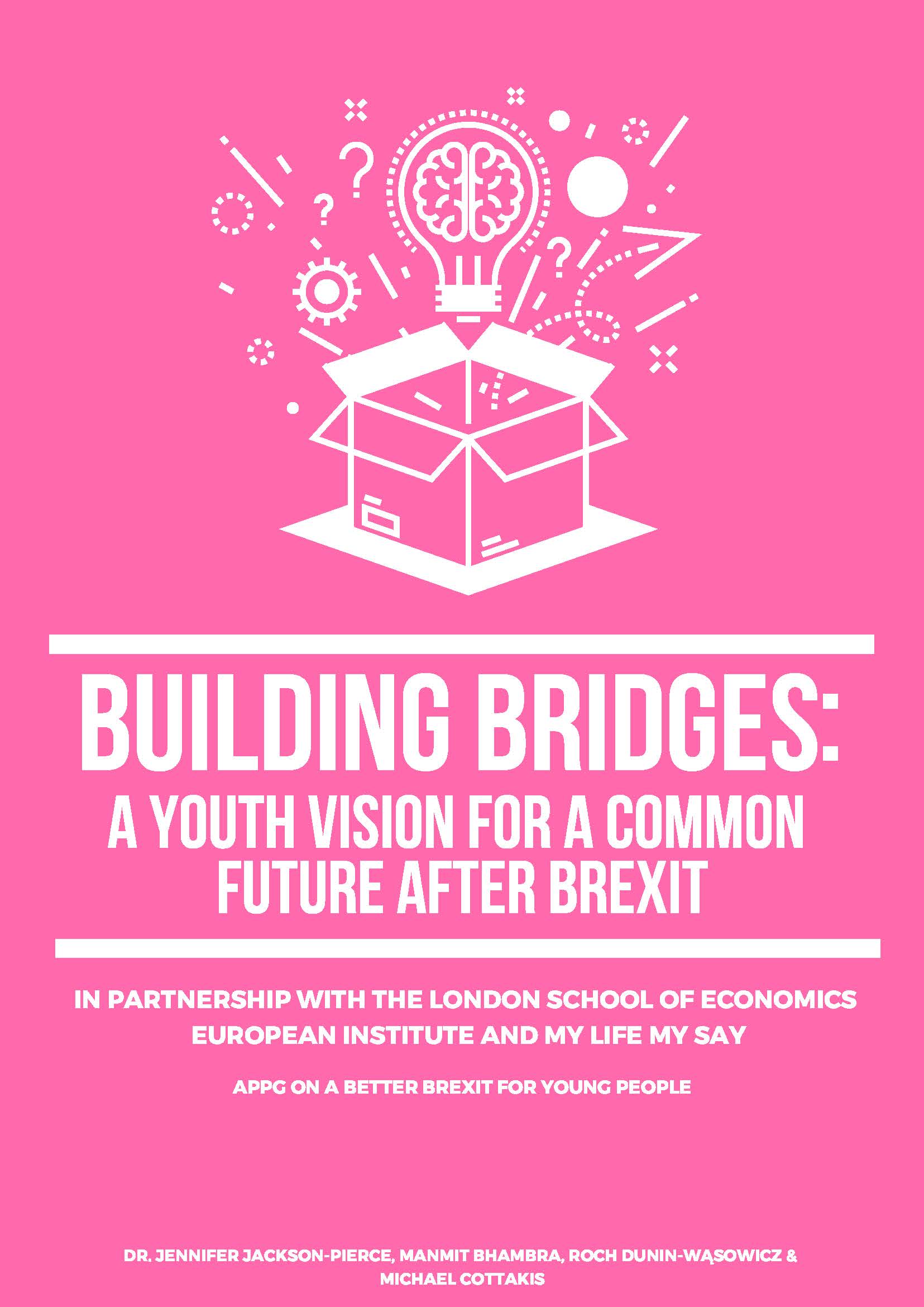The Government’s proposed Brexit deal disregards the views of many young people who want to maintain existing freedom of movement and trade arrangements, says a new LSE report commissioned by the APPG on a Better Brexit for Young People and launched today at a Common Futures Forum – spearheaded by My Life My Say. The Common Futures Forum will draw on the views of 200 young people from across Europe who will be present throughout the day’s event. Speakers from across the business, political and third sector will join social media influencers, public figures and celebrities to discuss their vision for the future of Britain.
The report “Building Bridges: A Youth Vision for a Common Future after Brexit” reflects widespread and deepening discontent amongst young people over what they consider to be the prioritisation of older generations in the negotiations. Most importantly, many British youth believe that the aggressive political debate conducted mainly between political elites will only damage any prospects for positive and productive negotiations. The results show the need for a unifying, pragmatic, bridge-building Brexit.
In a far reaching study taking into account the views of over 1400 young people between July and November 2018, the LSE has found that:
- Young people urgently desire a new kind of politics to build bridges over the many divisions of Brexit and are frustrated by the domination of Westminster elites in the current Brexit debate
- Young people have strongly held opinions on Brexit which they believe have been ignored across the UK and Europe during the process of the negotiations
- There is increasing frustration and resentment among young people who believe that the priorities of older generations have yet again been the driving forces behind the Brexit process
- The young people in the study believe that the political elite are fostering an aggressive political debate which is damaging prospects for positive and productive political relationships both inside the UK and with the EU
- Young people fear an age of intolerance in the aftermath of Brexit and want a positive commitment from politicians to protect diversity and inclusion
- Young people share a common cosmopolitan value system that is at odds with the populism unleashed by the Brexit vote
- Young people have been emboldened by the Brexit process and define themselves as “citizens with rights” and expect to be consulted by political leaders
Commenting on the report Stephen Kinnock MP, Chair of the All Party Parliamentary Group on a Better Brexit for Young People, said:
“It’s plain to see that the Brexit negotiations have failed to take account of the views of young people both in Britain and Europe. Young people are tired of the acrimonious political debates that have dominated over the past two years and desire a future that is built on co-operation and consensus.
Whilst their sense of frustration and even anger about the state of our politics is perfectly justified and understandable, we must be constructive. The purpose of the CFF is to kick-start the process of transforming young people’s feelings of resentment and alienation into a more productive commitment to listen, understand, engage, and find the common ground together, by building bridges and dialogue across generations and communities.
As we approach March 2019 it is essential that the views of young people are heard and that they have the opportunity to influence the course of events.”

